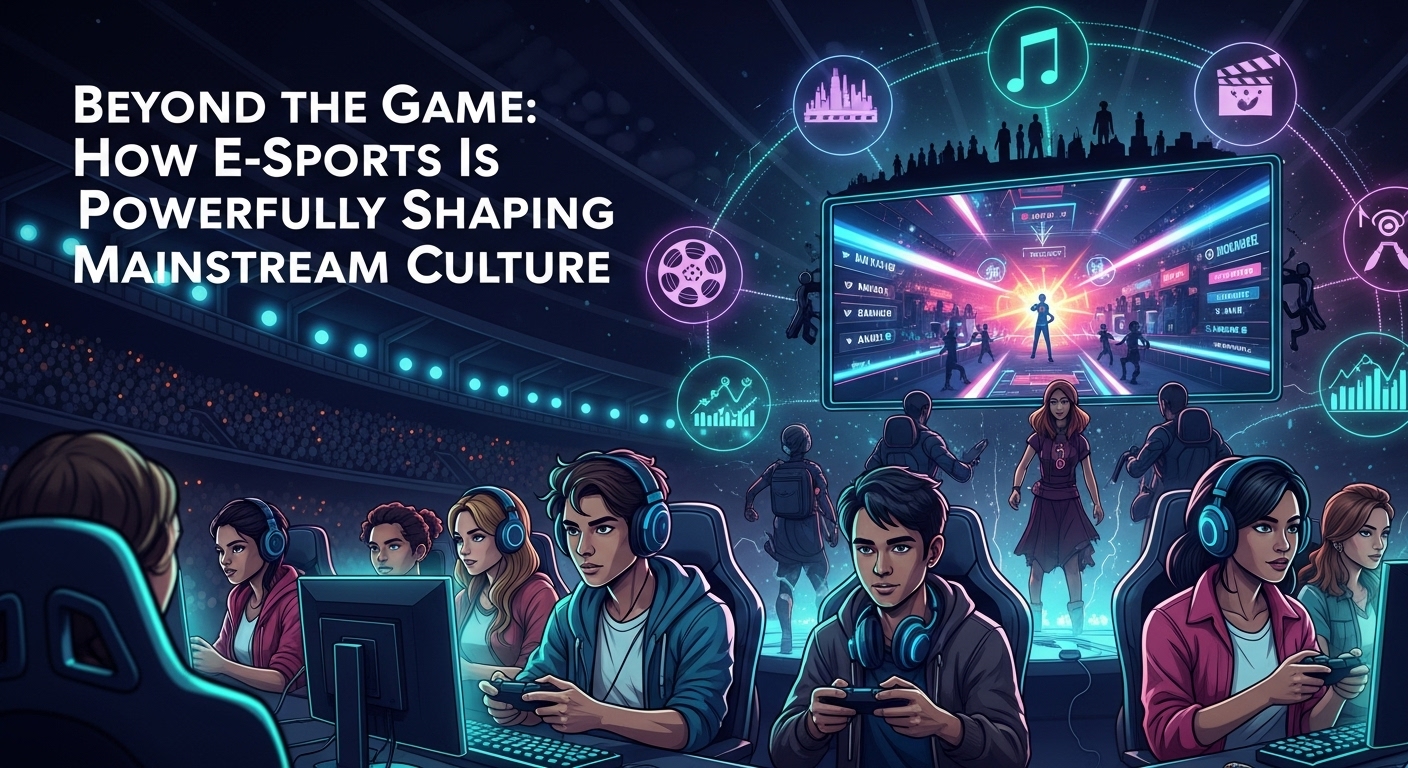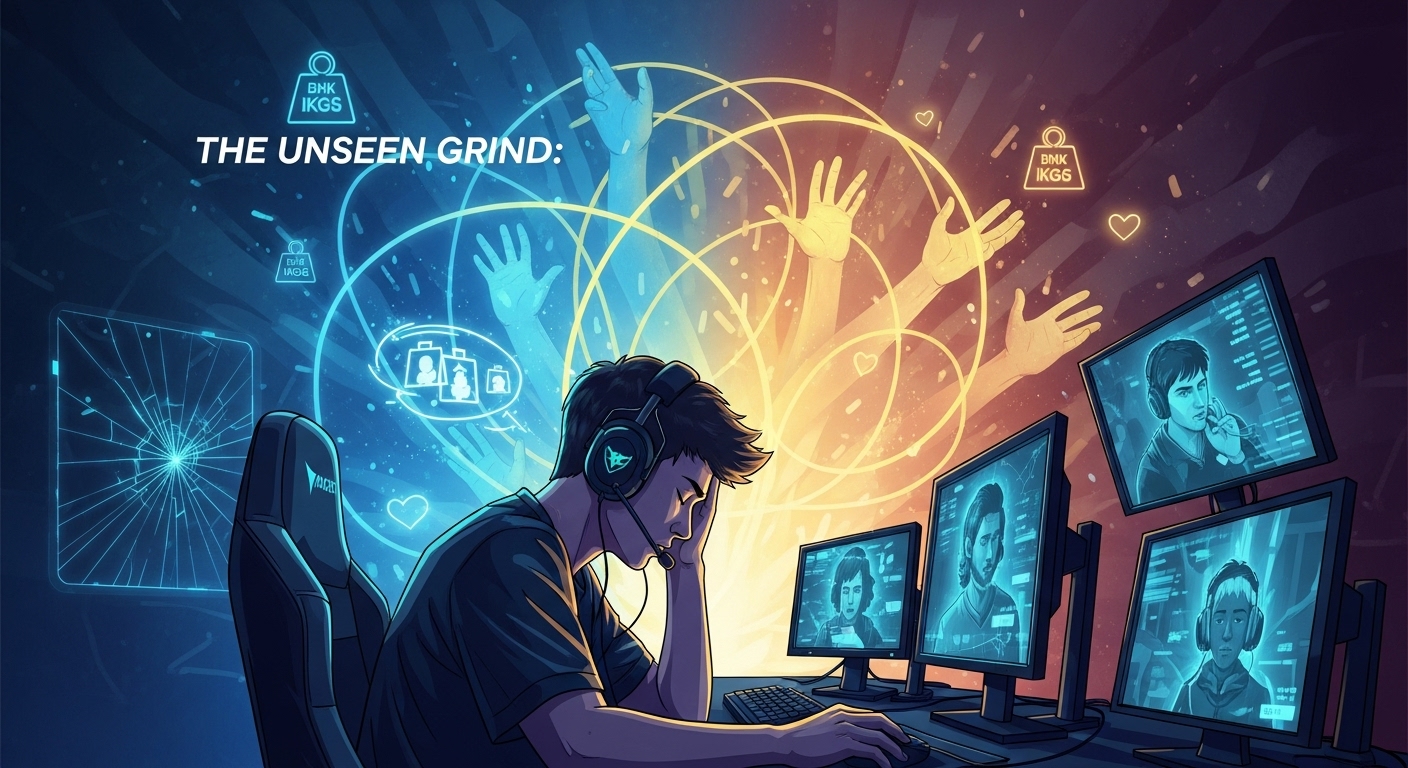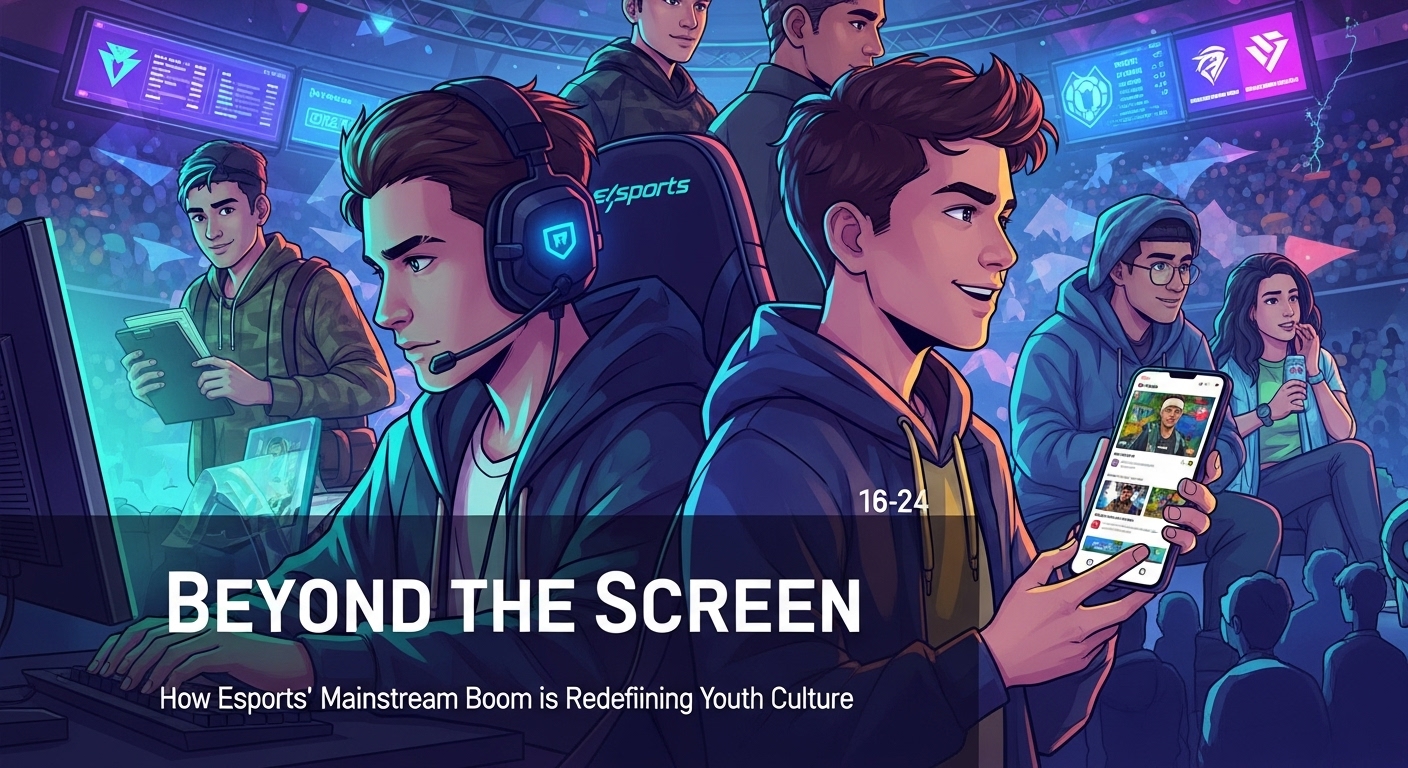The New Colosseum: E-Sports’ Unstoppable Rise
Not long ago, competitive video gaming was a niche pursuit, confined to basements and dimly lit LAN parties. Today, it’s a global spectacle. E-sports has exploded from a subculture into a dominant force in entertainment, with sold-out stadiums, multi-million dollar prize pools, and a viewership that rivals traditional sports like the Super Bowl. This meteoric rise isn’t just about the games themselves; it’s about the vibrant and influential world that has grown around them. The intersection of e-sports & culture is no longer a future concept—it’s the reality we live in, a dynamic fusion that is actively reshaping fashion, music, and celebrity culture right before our eyes.
Think about it: professional gamers are now household names, treated with the same reverence as star athletes. Teams like FaZe Clan, T1, and G2 Esports are not just competitive squads; they are global brands with massive, dedicated followings. The sheer scale is staggering. Tournaments for games like League of Legends, Dota 2, and Counter-Strike: Global Offensive attract tens of millions of concurrent viewers online. This isn’t just a hobby; it’s a cultural movement, and the mainstream world has finally started paying serious attention.
From Pixels to Paris Fashion Week: Gaming’s Style Revolution
One of the most visible arenas where the e-sports & culture blend is thriving is the world of fashion. The old stereotype of the gamer in a wrinkled t-shirt is dead. Today, e-sports is undeniably chic, influencing everything from high fashion runways to everyday streetwear.
High-Fashion Collabs and Branded Apparel
The link between gaming and high fashion was solidified when luxury brands began to see the immense cultural capital of the e-sports world. The most iconic example is the partnership between Riot Games’ League of Legends and Louis Vuitton. The French fashion house designed not only in-game character skins but also a physical trophy case for the World Championship and a capsule collection of apparel. This wasn’t a gimmick; it was a statement. It signaled that the e-sports audience was a demographic that luxury brands could no longer ignore. Since then, we’ve seen a wave of similar collaborations: Gucci partnering with Fnatic on a limited-edition watch, and Adidas creating signature sneakers for streamers like Ninja. Team apparel has also evolved from simple jerseys to full-fledged streetwear lines, allowing fans to represent their favorite teams with style.
The Rise of the E-Sports Influencer
Professional players and top-tier streamers are the new style icons. With millions of followers on platforms like Twitch, YouTube, and TikTok, their fashion choices have a direct and immediate impact. When a star player like Oleksandr “s1mple” Kostyliev or Lee “Faker” Sang-hyeok wears a particular brand, it sells out. These personalities are more than just players; they are tastemakers. They bridge the gap between their digital arenas and the physical world, making them powerful ambassadors for brands looking to tap into this authentic and highly engaged audience. Their influence demonstrates a fundamental shift in how trends are born and disseminated in the digital age.
The Soundtrack of a Generation: E-Sports and the Music Industry
Music and gaming have always been intertwined, but the modern e-sports ecosystem has elevated this relationship to a whole new level. The synergy is creating new revenue streams, new forms of entertainment, and new anthems for a generation of fans.
In-Game Concerts and Virtual Artists
The concept of a virtual concert was pushed into the stratosphere by events like Travis Scott’s “Astronomical” performance in Fortnite, which drew over 12 million concurrent players. This was more than just a livestream; it was an interactive, immersive experience that blurred the lines between a video game, a music video, and a live event. Following this success, other artists have followed suit. But the innovation doesn’t stop there. Riot Games created K/DA, a virtual K-pop group composed of League of Legends characters. Their songs have topped real-world music charts and amassed hundreds of millions of views, proving that a fanbase is willing to connect deeply with artists who exist only in a digital space. This fusion is a testament to the creative potential of the e-sports & culture landscape.
Anthems and Artist Partnerships
Major e-sports tournaments now come with their own official anthems, often created by world-renowned artists. Each year, the League of Legends World Championship anthem is a massive cultural event, with artists like Lil Nas X, Imagine Dragons, and Zedd creating tracks that define the tournament’s spirit. These songs aren’t just background music; they are epic narratives that build hype and emotional connection for millions of fans. Furthermore, artists are increasingly partnering with e-sports organizations. Rappers like Post Malone and Drake have invested in teams, while others collaborate on content and merchandise, recognizing the shared audience and cultural energy between the hip-hop and gaming communities.
Hollywood’s New Playground: E-Sports on the Big Screen
The drama, passion, and high-stakes competition of e-sports are a natural fit for film and television. Hollywood has taken notice, and the stories of professional gamers are now being told on both the big and small screens, further cementing e-sports’ place in the mainstream cultural consciousness.
Documentaries and Scripted Series
The human stories behind the screens are compelling. Documentaries like Valve’s Free to Play and Netflix’s 7 Days Out (featuring a League of Legends tournament) offer a gripping look at the dedication, sacrifice, and pressure faced by professional players. More recently, scripted series like Paramount+’s Players and Netflix’s animated hit Arcane (based on the League of Legends universe) have brought the world of e-sports to a wider audience, exploring complex characters and narratives with critical acclaim. These productions legitimize the profession and humanize its stars, breaking down old barriers and misconceptions.
Celebrity Investors and Team Owners
Nothing says “mainstream acceptance” quite like the backing of A-list celebrities. The list of high-profile investors in e-sports is growing rapidly. We’ve seen Michael Jordan invest in aXiomatic Gaming, Drake become a co-owner of 100 Thieves, and David Beckham launch his own e-sports organization, Guild Esports. These figures bring not only capital but also immense credibility and media attention. Their involvement validates e-sports as a legitimate and lucrative business, on par with any traditional sports franchise. It’s a clear signal that the world of competitive gaming is not just a trend, but a permanent and powerful fixture in the global entertainment industry.
The Future is Now: Join the E-Sports & Culture Movement
The evidence is overwhelming. E-sports is no longer on the fringes of society; it is a central pillar of modern pop culture. It dictates fashion trends, drives music charts, inspires blockbuster entertainment, and creates new global celebrities. The dynamic interplay between e-sports & culture has created a feedback loop where each industry elevates the other, resulting in innovative and exciting new forms of expression and community.
This isn’t just for the hardcore fans anymore. Whether you’re a fashion enthusiast, a music lover, or just someone curious about the future of entertainment, there is a place for you in this world. The next time you see a luxury brand drop a gaming-inspired collection or hear a new tournament anthem from a major artist, you’ll know you’re witnessing a cultural revolution in real-time. So why not dive in? Pick a team to follow, watch a major tournament, or join the conversation online. The game is just getting started. What are your thoughts on this cultural fusion? Let us know in the comments below!


